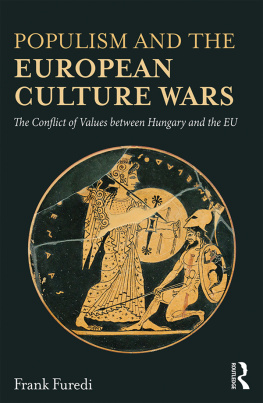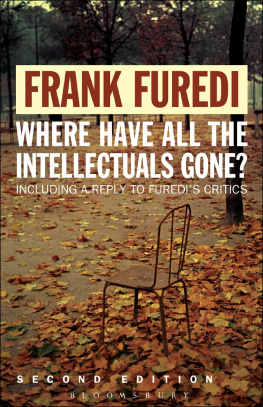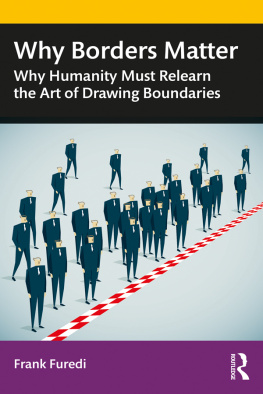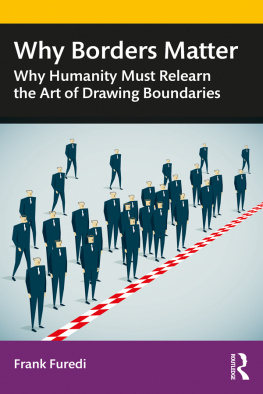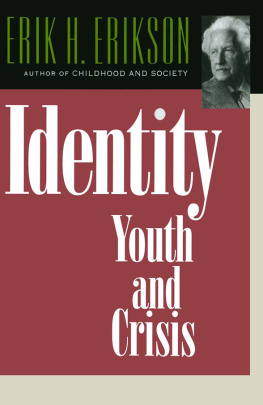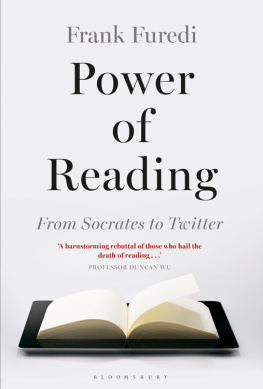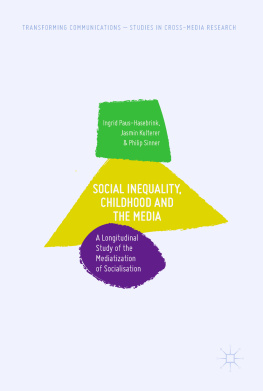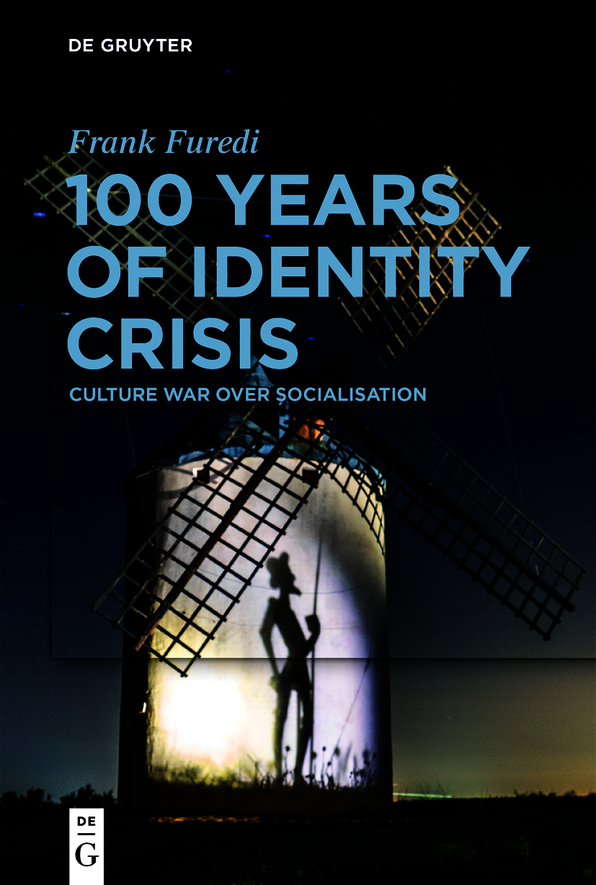The Deutsche Nationalbibliothek lists this publication in the Deutsche Nationalbibliografie; detailed bibliographic data are available on the Internet at http://dnb.dnb.de.
Introduction
Through the attempt to understand the historical origins of a phenomenon that today we call identity crisis, this author came to the conclusion that the condition can best be understood as a symptom of the unravelling of moral authority. Stable identities are not only psychological but also moral accomplishments. They are supported by clarity about meaning, which in turn draws on authoritative moral guidance. Without such guidance, peoples identities often become decentred and find it difficult to endow their lives with meaning.
The main argument outlined in this book is that identity and the crisis that often surrounds it, as well as its politicisation, are inextricably linked to the confusion that frequently envelops conflicts of values and moral norms. This development is particularly evident in the domain of socialisation and, as we argue, it is the way that socialisation has been historically managed that creates the conditions for the crystallisation of the contemporary form of identity crisis and the potential for its politicisation.
This book argues that 21st century cultural conflicts and related disputes over identity are the outcome of forces unleashed by the politicisation of the socialisation of young people in the late 19th century. Interest in the politicisation of socialisation was motivated by the belief that the demands of economic efficiency and social and political reform required the mobilisation of the idealism and energy of the young. It was claimed that a rapidly changing world required the re-engineering of the way young people were educated and socialised. To become truly modern and flexible they had to be distanced from the traditions and values of the past. To achieve this objective, old-fashioned moral norms had to be displaced by scientifically authorised values. Challenging and de-legitimating prevailing cultural norms was seen as the precondition for producing enlightened and healthy personalities.
Once socialisation was diverted from its traditional goal of transmitting moral norms, its capacity to provide a bond that bound together the different generations was undermined. Yet, these bonds serve to underpin the common world inhabited by members of a community. Once this bond begins to unravel, what is left is a sense of self in search of a home. This sense of homelessness created a need for the science of psychology, which, as we explain, diagnosed this predicament as an identity crisis.
The ethos of contesting and changing culture underpinned the worldview of modernising groups of social engineers devoted to detaching their society from the past. This impulse was most systematically expressed by American progressivism. However, virtually every modernist movement New Liberals in Britain, Social Democrats in Sweden, European socialists and eugenicists, communists, fascists endorsed and embraced aspects of this outlook. Though they often advanced a utopian vision of a world fundamentally re-engineered in accordance with scientific principles, in practice they were often drawn towards the more modest goal of rationalising the process of socialisation. They adopted this as their main objective because they drew the conclusion that the most reliable way of changing culture and replacing traditional with modern values was through influencing the attitudes of young people.
Political movements, therapeutic professionals, pedagogues and modernising capitalists regarded the re-engineering of socialisation as the main site for social/cultural/economic reform and renewal. Their ambition and project transcended the conventional ideological divide as movements of different shades of opinion increasingly looked to technical and scientific solutions to the problems facing society. Invariably, they relied on psychology to assist the re-engineering of socialisation. This dimension of social engineering has been characterised as mental modernisation by a recently published study on this subject. I prefer to use the term moral engineering to highlight its twin objective of modernising morality through replacing prevailing norms with psychological values with a view to changing culture. Moral engineering is a moralising project that seeks to render moral newly invented values.
At times, John Dewey, the leading intellectual of the progressive movement, referred to the educational techniques used to re-engineer education as a form of moral engineering. The displacement of moral norms by psychological and other types of administratively produced values has been integral to the project of moral engineering for over a century. As in the 20th, so too in the 21st century, moral engineering is devoted to the reconfiguration of moral norms. In the current era campaigns for raising awareness convey the ambition of moral engineering. Typically, their objective is to convert people from values that are deemed outdated and pernicious to ones that are consistent with awareness.
It turned out that the moral engineering of socialisation exacerbated a pre-existing problem, which was the question of what moral virtues a community should transmit to its young in the context of a rapidly changing world. The impulse to detach people from their communitys norms helped weaken the already weak influence of moral authority. As one study observed, the inability of liberal societies to develop any institutional means of transmitting its own virtues has precipitated a cultural crisis. The current expression of this crisis is an unprecedented level of concern with identity and the cultural conflicts that surround it.
Despite the significance of the question of inter-generational transmission of values, it has rarely gained the attention it deserves. Even when this problem exploded in the 1960s and unleashed a chain of events leading to the culture wars of the 21st century, the depth of the crisis of socialisation and its implication for society was underestimated. Socialisation has tended to be discussed as a technical matter, and it seemed as if the confusions surrounding its content were self-consciously ignored. That studied disinterest was in part due to the lack of clarity that adults possess about how to exercise their authority to the benefit of young people. It was also as the following chapters indicate due to the influence of an outlook that questions the very desirability of transmitting a communitys long-held virtues to the young.
Advocates of the re-engineering of socialisation came to the view that if they were to reshape people then prevailing cultural norms also had to be altered. Consequently, the re-engineering of socialisation required the de-legitimation of the values of the past and the customs and practices associated with it. In its place professions involved with the management of socialisation opted for using techniques of psychological validation to replace the previous regime of education and childrearing. The experience of the past 100 years indicates that these techniques are insufficient for providing young people with the guidance they require to make their way in the world. The most important legacy of the regime of socialisation through psychological validation is the emergence of the permanent condition of an identity crisis. The origins of the politicisation of identity and the conflicts surrounding it can best be understood through exploring the emergence and gradual expansion of a technocratic impulse oriented towards the management of socialisation and of human behaviour.


